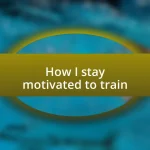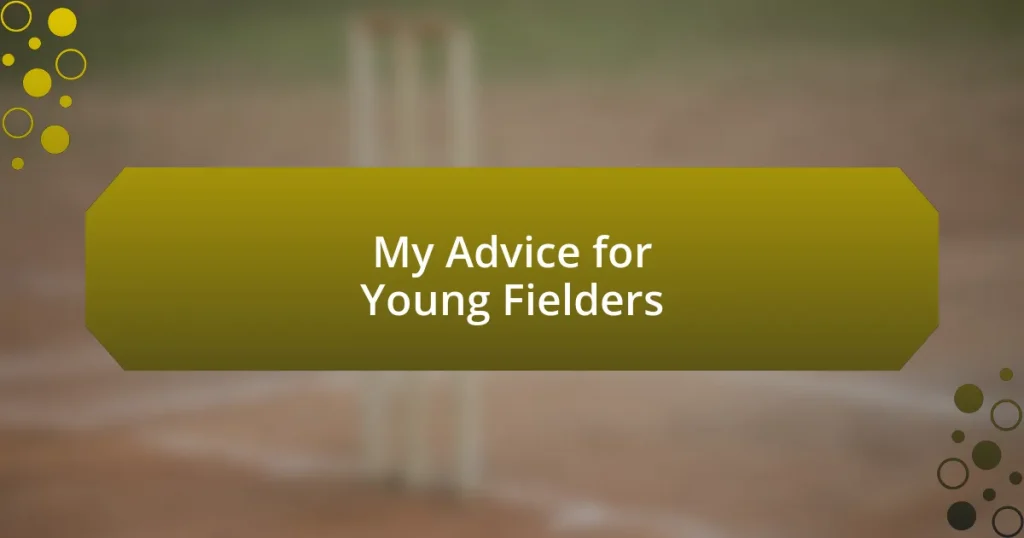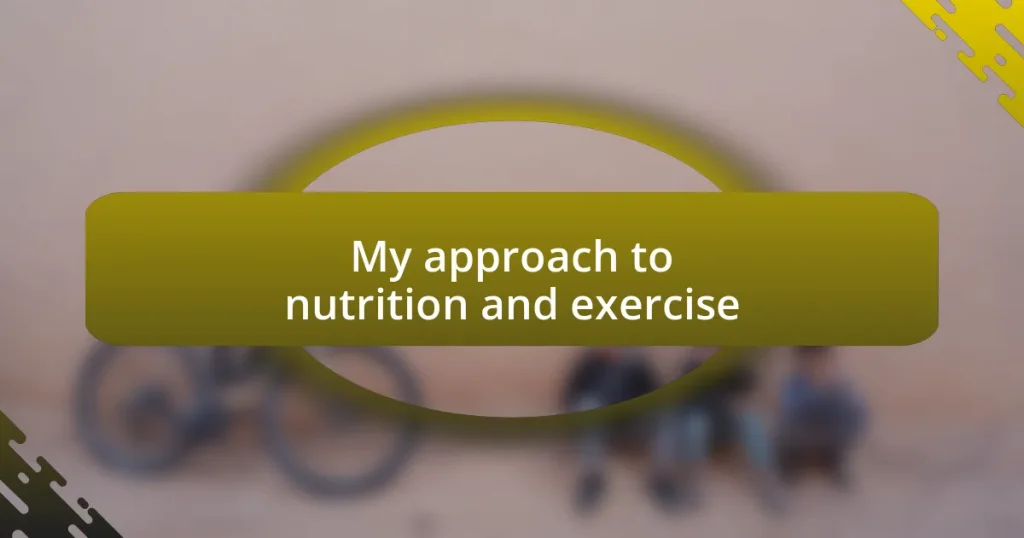Key takeaways:
- Mastering fundamental skills such as glove work, footwork, communication, and anticipation is essential for young fielders.
- Improving reaction time through specific drills and adapting to environmental conditions enhances overall fielding performance.
- Effective positioning and constant communication with teammates can significantly impact game success.
- Mental preparation, including visualization and focus techniques, is crucial for maintaining performance under pressure.

Understanding the Basics of Fielding
Understanding the fundamentals of fielding is essential for any young player. I still remember my early days on the baseball diamond when the coach emphasized the importance of positioning. I often found myself out of place, but with practice, I learned that staying aware of my surroundings was key. It raises the question: how can you effectively anticipate the ball’s direction?
One pivotal skill is glove work. A player’s glove is an extension of their hand, and mastering how to receive the ball is crucial. I recall the countless hours spent catching grounders, which taught me that a soft, open glove can absorb the impact better than a tight grip. Isn’t it fascinating how such a small adjustment can lead to significant improvement?
Footwork also plays a vital role in successful fielding. I often struggled with my agility, but incorporating drills focused on quick side steps changed my game. The thrill of making a clean play often outweighed the extra effort put into those drills. So, how do you make footwork a consistent part of your training routine? Prioritizing agility drills could be your answer.

Essential Skills for Young Fielders
When I think about the essential skills for young fielders, communication quickly comes to mind. I had a teammate who was brilliant at calling out plays; her voice was like a guiding light on the field. I remember a game where her clear shouts helped us execute a double play that I was certain wouldn’t happen without her direction. It’s remarkable how a simple word can elevate teamwork and confidence.
Another key skill is concentration. I learned the hard way that losing focus for just a second can lead to missed plays. I often found myself daydreaming, only to watch a ball zip past me. Here are some skills every young fielder should develop:
- Glove Skills: Practice catching the ball with a soft hand, allowing it to settle into the glove.
- Footwork: Work on quick sidesteps and agility drills to improve your reactions.
- Communication: Always call for the ball and encourage teammates to do the same.
- Anticipation: Learn to read the batter’s stance and adjust your positioning accordingly.
- Focus and Mindfulness: Stay mentally engaged during every play to avoid distractions.
These skills not only enhance individual performance but also strengthen the entire team’s cohesion.
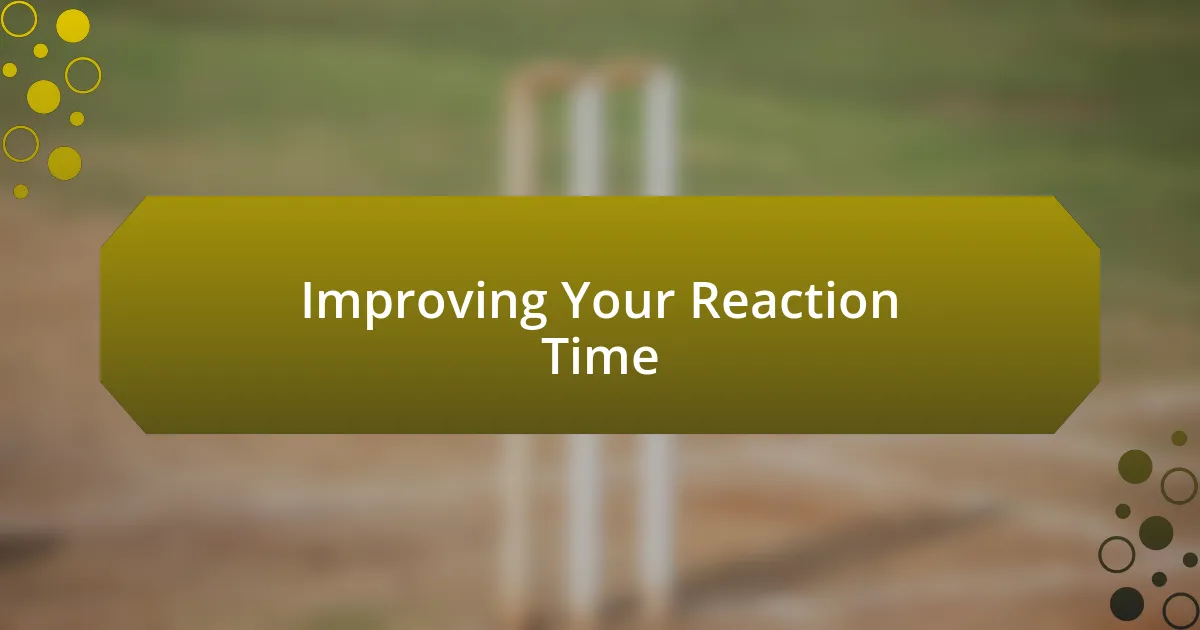
Improving Your Reaction Time
Improving your reaction time is essential for young fielders. I remember during my early days on the field, I would find my mind drifting while waiting for the next play. This lack of focus would often leave me a step behind, missing catch opportunities that seemed like easy grabs. I learned that honing my reaction time could make a significant difference, and practicing specific drills aimed at quick footwork and visual tracking really helped me.
Another aspect worth considering is the impact of your environment. When I started practicing outdoors, I realized that varying conditions—like wind or sunlight—directly influenced my ability to react swiftly. During a memorable practice, the sun was glaring, and I had to adjust my stance and focus to field a pop fly. This taught me that being adaptable in challenging conditions sharpens not only your reaction time but also your overall skillset as a fielder.
Lastly, the more you expose yourself to real game situations, the better you’ll respond. Simulating game-like scenarios during practice helps build muscle memory. I vividly recall a time when I participated in drills that mirrored actual plays, which significantly improved my instincts. Instead of thinking about what I should do, my body began to react instinctively—a crucial step in becoming a reliable fielder.
| Technique | Description |
|---|---|
| Footwork Drills | Exercises that enhance agility and speed, promoting quicker reactions. |
| Visual Tracking | Practicing how to follow the ball’s movement helps synchronize eye and body reactions. |
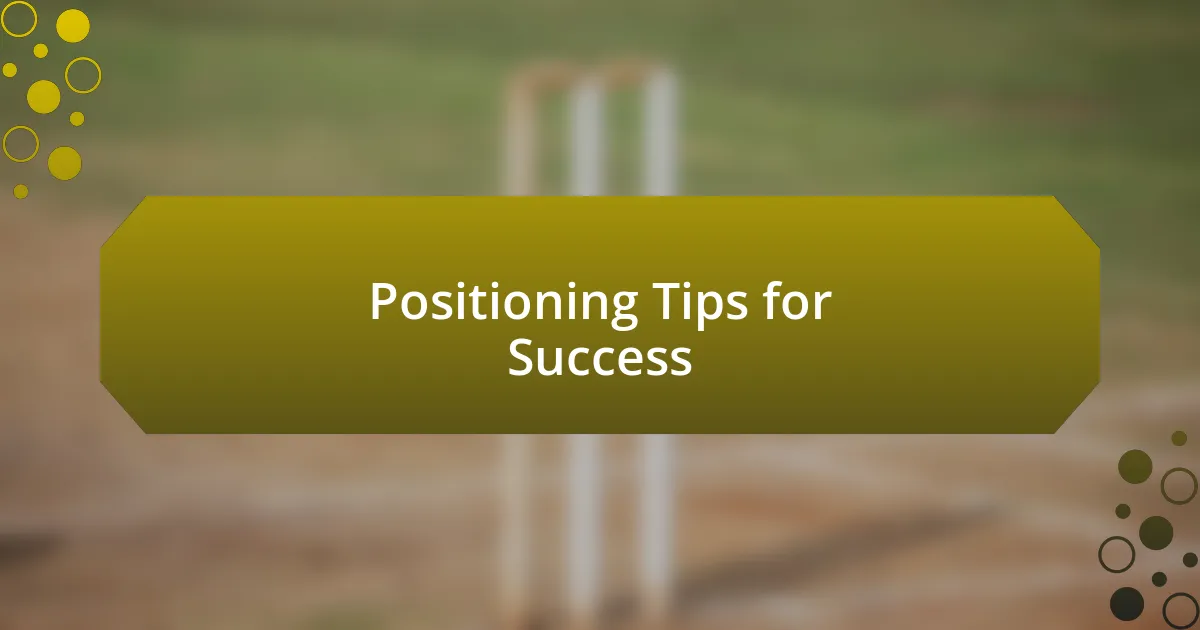
Positioning Tips for Success
Positioning on the field is crucial for every young fielder aiming for success. I can recall a game where I was stationed too far from the baseline, and I watched in dismay as a line drive whizzed past me. If I had remembered to adjust my positioning based on the batter’s tendencies, I could have made that play. Always pay attention to the hitter and adjust your stance accordingly; it can make all the difference.
Another element I learned about positioning is the concept of keeping a balanced stance. Early on, I frequently found myself flat-footed, making it tough to respond when the ball was hit. Once I started focusing on staying light on my feet and ready to pivot, I felt a surge of confidence. This flexibility allowed me to react quickly in any direction, enhancing my overall performance.
Don’t forget the importance of communication with your teammates while positioning yourself on the field. During one particular game, I lost track of a fly ball because I hadn’t signaled my presence to the outfielders. After that experience, I made it a point to call for the ball whenever I was in range. Building that rapport not only improves your own positioning but also supports the entire team’s dynamics. How often do you talk to your teammates during games? Making it a habit can be a game-changer.
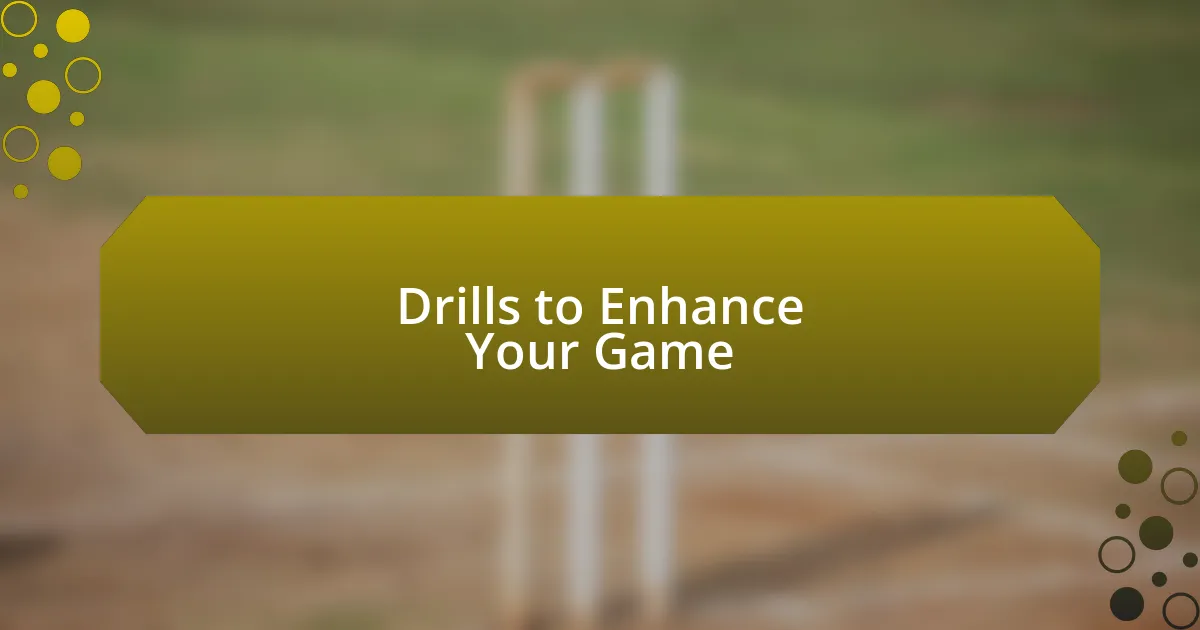
Drills to Enhance Your Game
Drills to Enhance Your Game
One of my favorite drills for honing fielding skills is the “short hops” drill. I vividly remember my first time trying this—my hands were stiff, and I fumbled quite a bit. But as I continued to practice, I felt my confidence grow. Focusing on those quick, low bounces improved my hand-eye coordination tremendously; it’s all about developing a feel for the ball just before it reaches you. Have you ever noticed how a little practice can change your reaction time?
Another exercise I highly recommend is the “bucket drill.” It involves fielding balls while standing next to a bucket. When I first attempted this, I struggled to get the ball in the bucket, leading to a bit of friendly teasing from teammates. Yet, pushing through that awkward phase taught me precision and focus. This simple exercise not only fine-tuned my throwing accuracy but also made my throws more consistent. The added pressure of aiming for a physical target can be a game-changer for young fielders.
Lastly, I found that incorporating reaction drills into practice can skyrocket one’s ability to anticipate plays. One unforgettable session involved a coach hitting ground balls at unpredictable angles. At first, I felt overwhelmed, but soon, I learned to trust my instincts. These drills helped reinforce my agility and decision-making under pressure, making me a more responsive fielder. What could be more exhilarating than knowing you’re prepared for anything that comes your way?
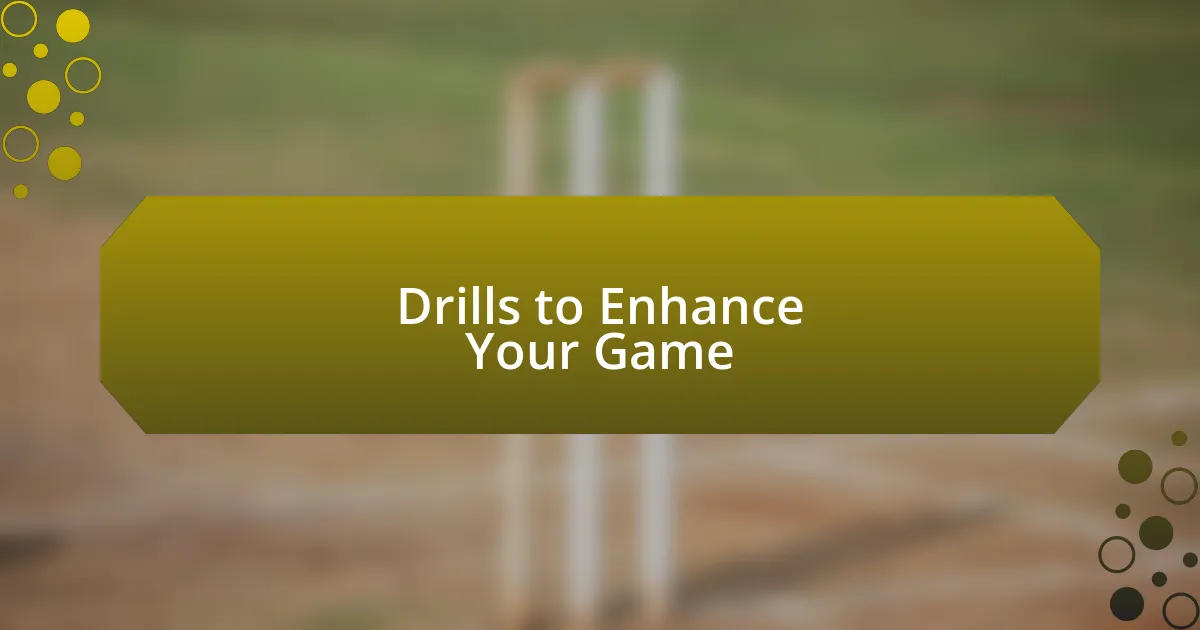
Mental Preparation and Focus
The mental side of fielding is just as crucial as the physical preparation. I remember a game where I let an easy pop fly slip through my fingers. The moment I lost focus, the ball found its way right past me. It taught me the importance of staying present and mentally engaging with each pitch. Have you ever found your mind wandering during a game?
Before each game, I developed the habit of visualizing myself making successful plays. Picture this: I would close my eyes and mentally replay fielding scenarios, imagining the perfect technique. This practice not only calmed my nerves but also primed my mind for success. Visualization can create the mental pathways that inspire confidence and boost performance.
Focus is also about knowing how to handle distractions. During challenging moments, such as when the crowd is loud or the game is tense, I found that taking a few deep breaths helped me regain my concentration. In those instances, I would remember that every fielder has faced adversity on the field. How do you cope under pressure? I learned that embracing those challenges rather than shying away makes me not just a better player, but also a more mentally resilient one.





